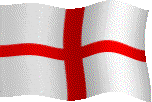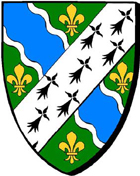Encyclopédie Marikavel-Jean-Claude-EVEN/Encyclopaedia/Enciclopedia/Enzyklopädie/egkuklopaideia

England Bro-Saoz |
Caistor (?) or Horncastle (?) Bannovalium |

Lincolnshire Bro-Lengolun |
| page ouverte en 2003 | forum de discussion
* forum du site Marikavel : Academia Celtica |
dernière mise à jour 28/05/2012 10:30:43 |
![]()
Définitions : l'attribution par les historiens reste incertaine, en l'absence de preuves archéologiques irréfutables, entre : Caistor : commune d'Angleterre, en Lincolnshire. (point rouge) Horncastle : commune d'Angleterre, en Lincolnshire. (point jaune) |
|
![]()
|
Extrait de la carte Ordnance Survey : Map of Roman Britain. |
![]()
|
Étymologie : A. Bannovalium : selon A.L.F Rivet & C. Smith : - Ravenna 10655 : BANNOVALLUM, variantes BANNOUALUM, BAUNOUALUM. DERIVATION. The first element is as in BANNA. The second is *ual-, *ualio-'strong', attested in Insular and Continental Celtic in such personal names as Dumno-valos ' strong one of the world' (or possibly 'deeply strong'; > Irish Domnall, English Donald), Touto-valos 'strong one of the tribe', Cuno-valos 'strong hound', and in toponymy British Luguvalium (Carlisle) and Coriovalium in Germania Inferior, now Hecrlen (Holland). In Welsh there are gwlad 'country, realm' and gwledig 'lord, king', and personal names Cadwaladr, Cynwal, Buddwal (Williams), with elements derived from this root. The Celtic root is cognate with Latin valeo, validus, valor, and hence with Valentia in place-names. The present name seems to mean 'strong spur, prominent height'. Ravenna's form with -vallum shows assimilation by Latin speakers to the common Latin noun vallum 'wall, rampart'. It is not an isolated scribal assimilation, in view of the same in Luguvallo of AI 4762 and Coriovallum of AI 3756, and other types of assimilation in other names (see p. 32). IDENTIFICATION. The name could refer to either Caistor or Horncastle, Lincolnshire, both of which were small Roman towns. At Caistor there is a spur of the Wolds. At Horncastle the 'spur' could be that formed by the junction of two rivers, one of them the Bain (which might then have taken its name by back-formation from the town, though Ekwall derives the name of this and other rivers from Norse beinn 'straight'). It is also worth noting that this place, Hornecastre in DB, has in its first element an Anglo-Saxon translation of British *banno- 'horn', or at least a coincidental reference to the same topographical feature. There seem to be no grounds on which to decide betwenn these two identifications". ----------------------- Le premier élément est le même que dans Banna (cf : Birdoswald) : cap, pointe. Le second élément est *ual- / *val- = fort, puissant. La forme *-vallum donnée par Ravenna représente une assimilation par rapport au latin *vallum : mur, rempart. *************** B. Caistor : selon Eilert Ekwall : Castre, DB, 12 DC.. OE caester, ceaster 'Roman camp or fort'. - Horncastle : selon Eilert Ekwall : Hornecastre DB, -castra 1130 P, 12 DC. The Roman station in the horna or tongue of land between the rivers Bain and Waring. |
![]()
|
Sources : * Eilert Ekwall : The Concise Oxford Dictionary of English Place-Names. Clarendon Press. 1980. * ALF Rivet & Colin Smith : The Place-Names of Roman Britain. Batsford Ltd. London. 1979. |
![]()
|
Liens électroniques des sites Internet traitant de Bannovalium : * lien communal : forum de discussion* forum du site Marikavel : Academia Celtica hast buan, ma mignonig go fast, my little friend |
![]()